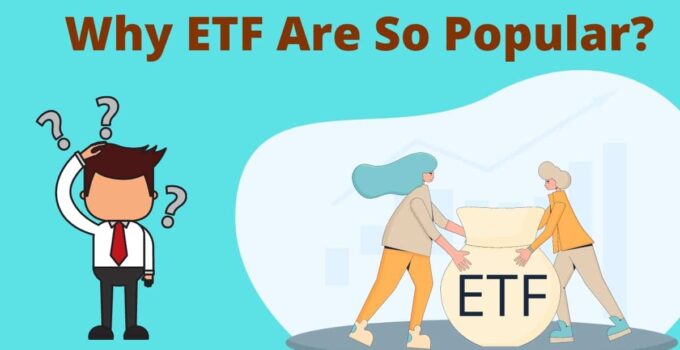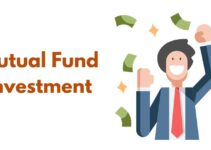The mindset of every investor is that he wants maximum financial return in return for his minimum financial investment.
In fact, the investor should first examine his financial goals and his ability to take personal risks. Each investment instrument returns according to the associated risk aspect. There are two types of investment options, fixed and uncertain.
Market prices depend on national and international developments and changes in the region, political upheavals and sudden crises such as the Corona epidemic of the past year. There is a general feeling among investors that a minimum investment should yield a maximum return and that it should be tax-free.
It is also important to check whether or how to make a profit. For this, investment should be made only after verifying the objectives of asset allocation and diversification. In such cases, ETFs, i.e. ‘Exchange Traded Funds’ are useful. First of all, we need to know what ‘ETF’ is.
What is ETF (Exchange Traded Fund)?
Fees and costs vary for each investment instrument. These costs + fees are different in each investment and they are not the same. With this in mind, new investors are often advised to invest in mutual funds. Today’s investor is of the opinion that your return should be stable, long-term and at least risk-free. As he insists that his investment should be more returnable, he naturally turns to ETFs, which are the least expensive, and this choice can be a great option.
ETFs, which are very popular among investors all over the world, are also gaining popularity in India recently. As it continues to be included in the investor portfolio, it is now necessary to understand the full details of the scheme.
Many mutual fund houses are incorporating ETFs and their assets are growing. As the name suggests, it is a mutual fund scheme and its investment objectives are similar to those of a mutual fund.
Now you want to invest in bank shares but you don’t know which bank you will benefit from. In such a scenario, since the ETF with a banking index represents the top bank shares in that area, your investment is automatically in the desired location. It also makes it possible to get the benefit of buying a bank index at a lower cost, in addition to the benefits of buying a bank share.
Top Exchange Traded Fund List
| Plan Name | 1Y Return | 2Y Return | 3Y Return | 5Y Return |
|---|---|---|---|---|
| UTI Nifty Index Fund | 56% | 16% | 15% | 15% |
| SBI Nifty Index Fund | 56% | 16% | 14% | 15% |
| HDFC Index Fund | 56% | 16% | 14% | 15% |
| IDBI Nifty Index Fund | 55% | 16% | 14% | 14% |
| ICICI Prudential Nifty Index Fund | 56% | 16% | 14% | 15% |
| LIC MF Index Fund – Nifty Plan | 55% | 16% | 14% | 14% |
| HDFC Index Fund – Direct Plan | 54% | 16% | 15% | 15% |
| IDFC Nifty Fund – Direct Plan | 56% | 17% | 15% | 15% |
| Nippon India Index Fund | 56% | 16% | 14% | 15% |
| Franklin India Index Fund | 56% | 16% | 14% | 14% |
Gold ETF – New way of Investment in Gold
- Gold ETF is another great option. It is very expensive and expensive to actually buy gold from the market, make jewelery and keep it. If you want to look at gold as an investment, Gold ETFs would be an ideal option.
- Units of this fund that invest in gold get you at the price of gold per gram and the value of the units of this fund increases with the increase in the market price of gold.
- This gold stays with you in paper or demat form, so you don’t have to spend extra on security and insurance to save it.
Benefits of ETF
- Risks and returns: The higher the risk, the higher the return, and the lower the risk, the lower the return. Against this backdrop, it will be more enlightening to see why ETFs have become an attractive option for investors in the short run.
- Low Capital: It would have been expensive for investors to personally buy all the shares in the ETF portfolio. Moreover, it is difficult for them to study this investment and keep an eye on the market. Investors also have to pay brokerage fees for direct share purchasing. Instead, ETFs can hold more and more shares at a lower price.
Conclusion
ETFs invest in stocks and are a replica of index funds. Many mutual funds are actively managed, so management costs on these funds are high and as a result their returns vary. ETFs, on the other hand, are passive management funds and of course the investor has to pay a minimum of management costs.
Take a Look




